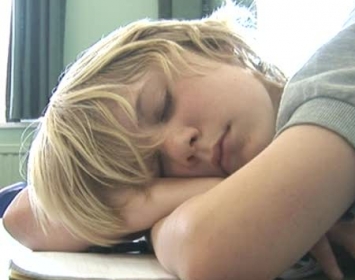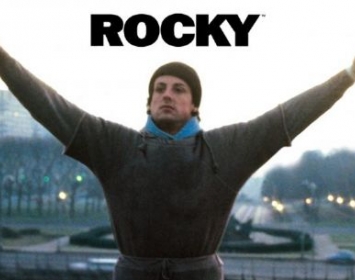“You cannot avoid death. People are not afraid of death itself, but of suffering and pain.”
The Sahara Desert is one of the most challenging survival environments on Earth. This 9.2 square kilometre desert is nearly as large as the entire United States and is known for its intense heat. Rain is minimal and the odds of meeting another person is extremely low. The six-day annual ultramarathon, The Marathon des Sables, is the toughest foot race in the world. Not for the fainthearted.
.jpg)
In 1994, 39-old Mauro Prosperi, an Italian police officer, and Olympic pentathlete took part in the race, but following a sandstorm, he got lost in the desert for nearly 10 days. Following his ordeal, he didn’t give up and have participated in many other extreme challenges and races since then, even returning to the Sahara to complete the marathon, he once began.
Now, 63-year old Mauro lives in Sicily, adored by many children and adults. He is still an active athlete, taking part in races and coaching children for triathlon competitions. He also happens to be my 10-year old son, Artúr’s coach. So, we went out for a stroll in the picturesque village of Aci Trezza, to talk about his survival story. He really is a superhuman, believe me.
.jpg)
After all the success as an athlete and Olympic pentathlete, why did you decide to take part in such an extreme race?
Well, pentathlon is already an extreme sport, at least on competitive, Olympic level. The athletes do crazy things! My jump to endurance sports didn’t mean any change of training methodology, I didn’t change my idea of sports, either. I wanted to push my physical limits.
Besides The Marathon des Sables, what other extreme sports have you tried so far?
I’ve tried everything from sky running through windsurfing, motocross, and kayaking. No matter what sport I was trying my hand at, I always endeavoured to learn it, and to do my very best, and to respect the nature, the environment, and not to harm it in any way. If you hurt nature, nature will kill you.
Let’s go back in time and talk about your incredible story. So, when exactly did you realize that you had got lost? What were your first thoughts?

Even after the sandstorm hit me, I was fighting for victory. I was convinced that I would be found and could continue the race. After I realized there was nothing to do, as far as the race is concerned, I started to run, thinking that I was heading towards the right direction. After about one and a half hours I realized that I had got lost when I couldn’t see anything, not even the marking flags. I was not afraid or scared, because I knew that the rescuers would come searching for me. I prepared a camp and a small fire and fell asleep. When I got up and climbed up on the top of the highest dune, I couldn’t see anything familiar. Then I knew the situation was serious, and to make it even worse, I had drunk almost all my water.
The following day I saw a helicopter flying very low, I quickly fired my distress flare so that the pilot could spot me. But he didn’t. By that time, I was desperate. Not because I was afraid, but because of desperation. My first thought was that they had forgotten me, but that couldn’t happen, I was still sure they would come and find me. I was not worried.
What did you have with you? How did you know what to do, what to eat and drink in the desert?
When the whole thing happened, I had very little water with me, so I urinated into my empty water bottle to save it. During the race, competitors drink about every 5 minutes because of the heat, so my urine was very clean at first, very transparent. As the time went by, and I got more and more dehydrated, my urine got darker and dirtier and I knew I could drink only the first ones. On the third day, I got to a marabout shire, it was cool and dark. In the tower, there were bird’s eggs in a nest that I ate. Later I was so terribly hungry that I had to do something I never thought I would do. There were some bats in the tower. I climbed up there and snatched two of them. I cut their heads off and sucked their blood. There was no other choice. I knew I had to eat anything I found: bats, snakes, mice.
I also knew that the only way to keep myself going was to be organised, to be disciplined, not to lose my head. So, I set up a very strict schedule for myself, and I was walking only from 4 am to 10-11 am, because later it was burning hot, hitting 50 Celsius degrees sometimes. At night, on the contrary, it was very cold, even less than 0 Celsius degrees.
What was the point when you decided to kill yourself?
As time went on, my chances of survival were slimmer and slimmer. I had two choices, either to continue walking towards another marabout or to stay there and die. I knew if I died in the desert nobody would find my body, and my wife would not get the police pension. (In Italy, if somebody goes missing, you have to wait 10 years before they can be declared dead.) So, I thought, if I died in the Muslim shrine my body would be found, and my wife would have an income. Obviously, I chose to stay there and die. I had once heard that dying of thirst was the worst possible way to pass away. I wasn’t afraid of dying, I just wanted to make it happen as soon as possible. You cannot avoid death. People are not afraid of death itself but of suffering and pain. I wanted to accelerate it, so I decided to take my own life. I wrote a note to my wife with a piece of charcoal and then cut my writs. I lay down waiting to die, but my blood was so thick that it wouldn’t drain. I passed out and when I woke up the following morning I thought that it was a sign of fate, a sign of destiny.
After regaining my strength, I left the shrine and started walking again. I followed the advice the Tuareg had given the racers before starting the competition: “If you’re lost, head for the clouds that you can see on the horizon at dawn, that’s where you will find life. During the day they will disappear but set your compass and carry on in that direction.”
.jpg)
I kept walking in the desert for days, eating snakes and lizards raw, in this way also drinking their blood. I lost an incredible amount of weight. I was so dehydrated I couldn’t urinate anymore. Meanwhile, the organisers were looking for me, and also my brother and brother-in-law had flown from Italy to join the search. They found some traces I had left, but pretty much everybody was sure they were looking for my dead body.
It was the eighth day when I found an oasis. I lay down and just drank slowly for hours. I saw footprints, so I knew people may be around. The following day I saw some goats and then a young shepherd girl. She saw me, too, but ran away, towards a large Berber tent. She warned the women that I was coming. There were no men in the camp, but the females took care of me. They gave me goat’s milk. She also tried to give me food, but I couldn’t eat and kept throwing up. Being a man, I was not allowed to be brought into the tent, but they put me on a carpet in the shade and sent someone to call the police. When the police arrived, I was carried away to their military base, blindfolded, because they didn’t know who I was. When they found out I was the marathon runner who had got lost in Morocco they took off my blindfold and celebrated. I discovered that I had crossed the border into Algeria. I was 291km off course. Then finally, I was able to call my wife. The first thing I said to her was: “Have you already had my funeral?” Because after 10 days lost in the desert you wouldn’t expect someone to be alive.
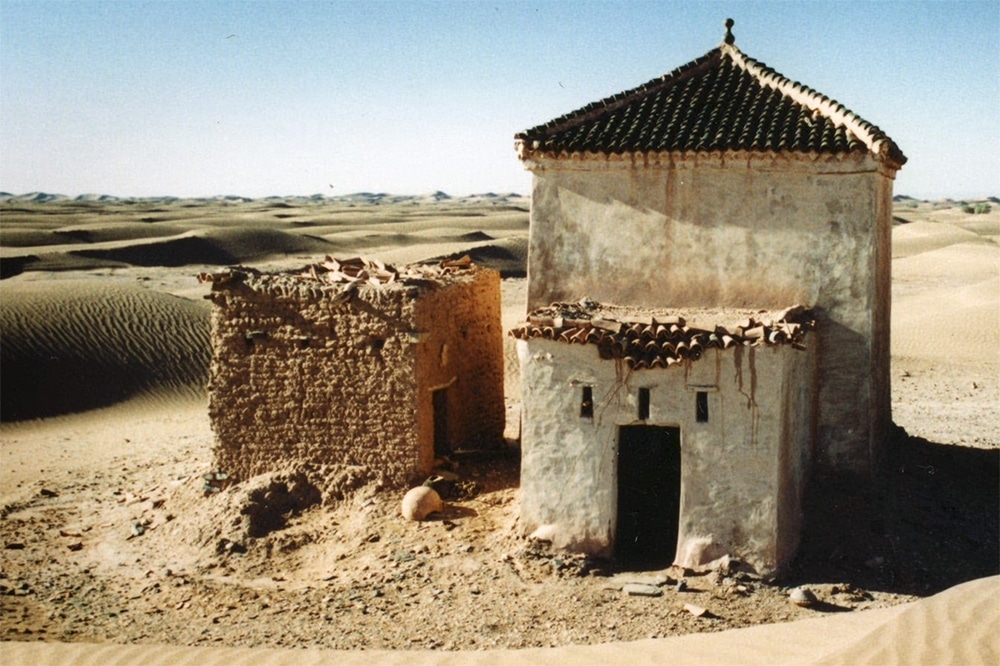
How much time did you need to fully recover?
I was taken to hospital in Tindouf, where they weighed me. I lost 16 kgs., I weighed just 45 kgs. My eyes, my liver and also my muscles got damaged, because of the extreme dehydration. My ears and one of my eyes got permanently damaged. For months I could have only liquids. It took me almost 2 years to recover. I was kept in hospital for about 15 days, then I was transported to Italy where I had to spend 2-3 days in hospital every month for regular check-ups for a year. The doctors thought that I might have AIDS because of all the raw animals I had eaten, and also because the hospital conditions in Algeria were not of the highest standards.
.jpg)
How on Earth did you decide to take part in the race again?
I was always a sportsman, an athlete. I always finish my races, I never leave a challenge uncompleted. If I started it, I should finish it. Apart from the first one, I took part in the race nine times.
You worked for the mounted police in Catania. Why did you leave your job to become a coach?
I have always considered myself as an educator, a teacher, even when I worked as a policeman. I always loved to teach. In 2009 I retired and became an instructor, a coach, which is one of the most beautiful jobs you can have.
Why do you coach children?
The most beautiful and satisfying thing in life is to be around kids, to teach them, to give them something. Their smiles illuminate you. Even if you are strict, they are keen to learn, to get, they respect you. You become their mentor, their coach, not only as far as sport is considered, but also a bit of a coach in their life. I help them to grow up, and to understand the true meanings of life. Parents usually are very happy and content, because I teach their children how to make sacrifices, how to give up things to obtain something, to reach what they want, and to fulfil their dreams.
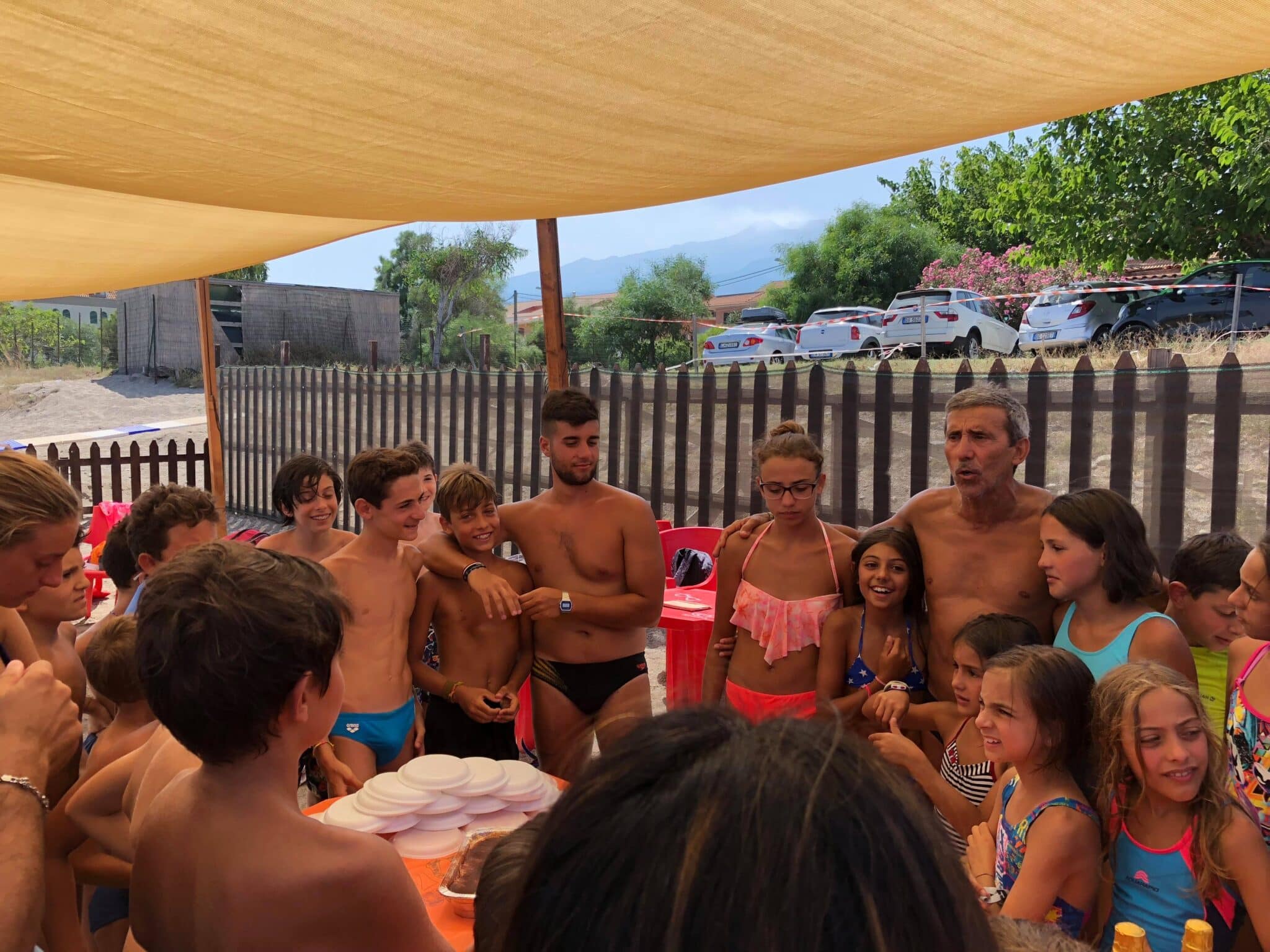
Kids nowadays have too much, and they don’t understand that sometimes they have to make sacrifices and experience deprivation and be as organised as they can. It is not easy, life is not easy, but nothing is impossible. But kids also want to learn, and they repay you with their smiles, their love, and trust.
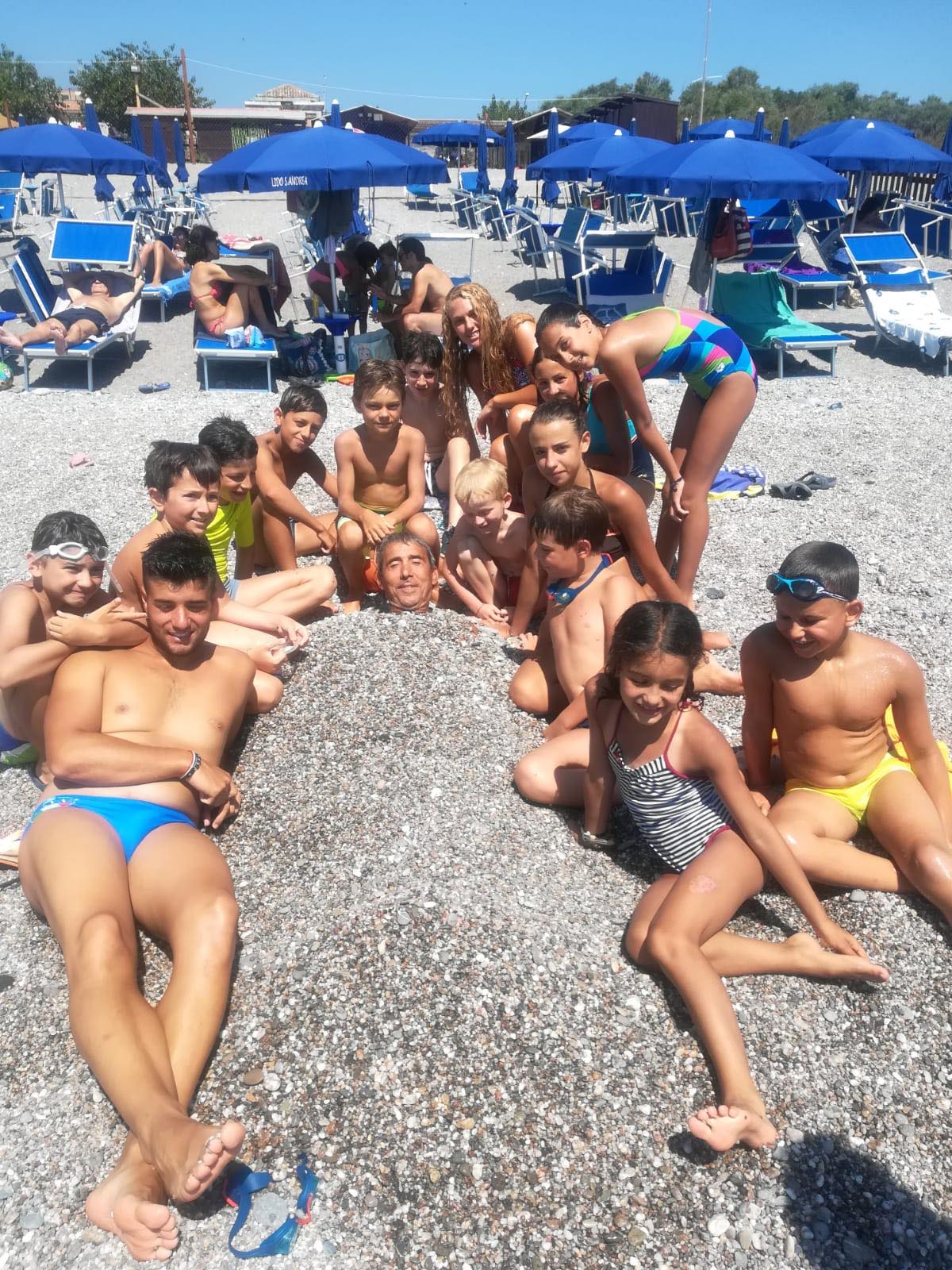
What are your plans for the future?
I have countless plans and ideas. My main aim is to educate little champions, healthy kids. But I also have my personal goals, like crossing the Atlas Mountains by mountain bike. It’s about 1500 kilometres. I also want to go around Corsica on kayak. I’m also in talks with a television channel about a TV show. So, I’m not, ever bored. I live my life to the fullest, at 360 degrees, and try to find enlightenment in every minute of it.
Vocabulary
to avoid | elkerülni valamit |
suffering | szenvedés |
challenging | kihívó, kihívásra késztető |
survival | túlélés |
environment | környezet |
intense heat | rendkívüli hőség |
odds of … | valaminek az esélye |
fainthearted | bátortalan, félénk, gyáva |
pentathlete | öttusázó |
sandstrom | homokvihar |
ordeal | megpróbáltatás, |
to be adored by | valaki által csodálva lenni |
stroll | séta |
picturesque | festői |
endurance | állóképesség, kitartás |
no matter what | mindegy, hogy …, nem számít |
to try one’s hand at | kipróbálja magát valamiben |
to endeavour | törekedni valamire |
to be convinced | mdggyőződve lenni |
as far as … is concerned | már ami a …-t illeti |
dune | dűne |
distress flare | vészjelző rakéta |
desperate | kétségbeesett |
desperation | kétségbeesés |
to urinate | vizelni |
dehydrated | kiszáradt |
to avoid | elkerülni valamit |
suffering | szenvedés |
challenging | kihívó, kihívásra késztető |
survival | túlélés |
environment | környezet |
intense heat | rendkívüli hőség |
odds of … | valaminek az esélye |
fainthearted | bátortalan, félénk, gyáva |
pentathlete | öttusázó |
sandstrom | homokvihar |
ordeal | megpróbáltatás, |
to be adored by | valaki által csodálva lenni |
stroll | séta |
picturesque | festői |
endurance | állóképesség, kitartás |
no matter what | mindegy, hogy …, nem számít |
to try one’s hand at | kipróbálja magát valamiben |
to endeavour | törekedni valamire |
to be convinced | mdggyőződve lenni |
as far as … is concerned | már ami a …-t illeti |
dune | dűne |
distress flare | vészjelző rakéta |
desperate | kétségbeesett |
desperation | kétségbeesés |
to urinate | vizelni |
dehydrated | kiszáradt |

